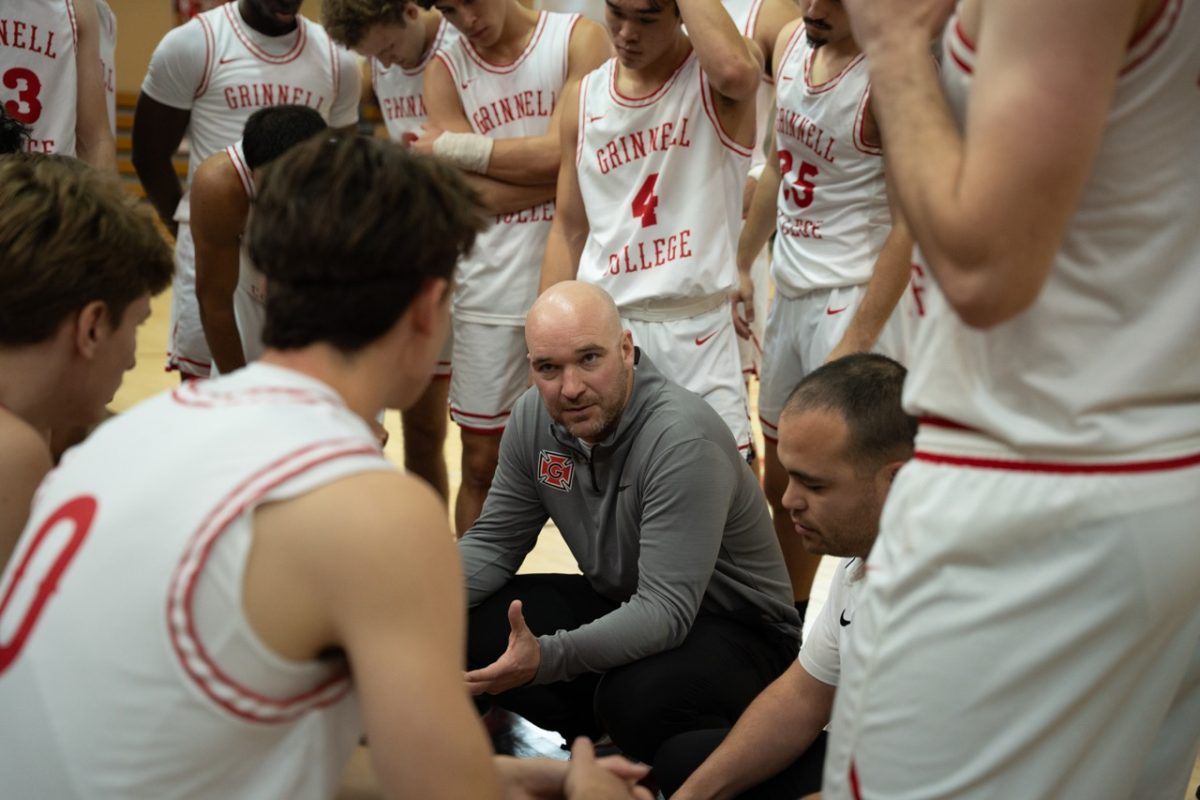Grinnell College’s Equestrian Club has come under fire for their large budget requests from Student Government Association (SGA) activities funding.
Quinn Ercolani ’20, SGA treasurer, estimated that around 25-30 percent of the Student Programming Committee’s funds this year will go to Equestrian Club. The club uses the funds to sponsor riding lessons and a drill team for about 20 consistent members. Some students appear upset that such a large percentage of a student programming budget, which is primarily funded by a fee that every College student is required to pay alongside their tuition, goes to the club.
This past week, the Loosehead Mini Minutes email read, “Passed the Equestrian Club Budget of $4,320 to fund that student group until the end of the semester. … This one is always kind of a grumbler. We def don’t like giving away fat stacks to this club that serves so few people.”
However, Ercolani does not think that SGA funding of Equestrian Club is particularly problematic.
He said, “We can afford it, so we do it, because that would be 20 students less receiving benefit from their money in student government.”
In spite of its costs, the members of Equestrian Club are steadfast in their commitment to the club.
Anna Emerson ’20, a member of the club, said, “For me personally, horses have been a great outlet emotionally and physically, because it’s a great way to exercise while also decompressing completely.”
Emerson also believes that it is important for the Student Programming Committee to use its funds to make equestrianism financially accessible. “I think that making it so that it’s not a financial burden and something associated with a higher bracket of financial wealth is something that is hugely important because I personally think that everyone should be able to at least try it.”
Although the club is free to join, lessons and drill team practices have an additional out-of-pocket cost. SGA-subsidized lessons cost $8 or $13 for private and group lessons, respectively. In addition, each member of the drill team pays $10 each week.
Securing SGA funding for the club is no small task, either. Emerson says that Equestrian Club members have been forced to answer personal questions at Campus Council meetings.
“It’s a lot about personal finances that comes up, and not a lot of people on the team are necessarily willing to disclose their socioeconomic status,” she said, “mostly because that’s not something they feel comfortable talking about because in an environment like Grinnell everyone wants to feel like they’re included.”
Molly Vornholt ’19, another member of Equestrian Club, said “The economic environment of Grinnell is that you have money, and a lot of us don’t, which is the common misconception that we have on drill team is that we’re all rich.”
Equestrian Club members also work at Triple V Stables, whose horses and facilities they use, every weekend, building up credit so that if SGA funding falls through they can still continue riding.
“I don’t want to be out there doing manual labor when it’s below zero, but I would,” Emerson said.
Equestrian Club are very aware of the large proportion of the Student Programming Committee’s funding that they use and the criticisms leveled at them. The club has looked into becoming an official club sport, which would mean the Grinnell College Athletics department would eventually finance their expenses.
This would be a welcome change for SGA, which is dealing with a more tightly-constrained budget than in previous years due to the creation of a new position funded by the student activites fee. Though Ercolani claims no student groups have been severely affected by cuts to the student activities fund, SGA would be relieved of funding an expensive club. Further, Equestrian Club members would no longer need to constantly defend their budget at Campus Council meetings.
Water polo and ultimate frisbee groups have made the transition from being solely funded by the SGA Program Committee to receiving partial funding from Athletics. However, becoming an official club sport is no simple task. Assistant Athletic Director Ben Cooprider says that the team needs to prove that they have a sustainable roster, compete outside of campus and belong to a higher organization with bylaws.
The drill team holds events off-campus, but it only officially began three years ago, so it is unclear how sustainable its roster will be. In Cooprider’s words, “We don’t want to be supporting something that’s gonna die out in two years.”
Since most colleges do not have an equestrian team, Equestrian Club members are currently asking around the country to find a higher organization to belong to.
Despite this, Cooprider thinks that the club “has a legitimate case.” He added, “They seem more organized and attentive to the things we want them to be attentive to than they were three years ago. They check boxes they didn’t check three years ago. I’m impressed with their organization and dedication to the group.”
Equestrian Club also plans on making changes in how they welcome other students into the club.
“We want to be as transparent as possible,” said Emerson. “In the past we’d be like ‘yeah, it’s open to everyone’ but we weren’t necessarily broadcasting that, and that’s a problem because we can’t claim accessibility if we’re not telling people that it’s accessible.”

























































